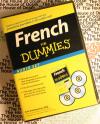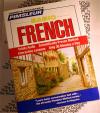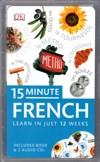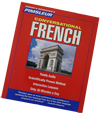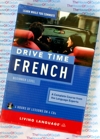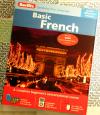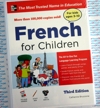Teach Yourself Complete French - Book and 2 Audio CD - visit France
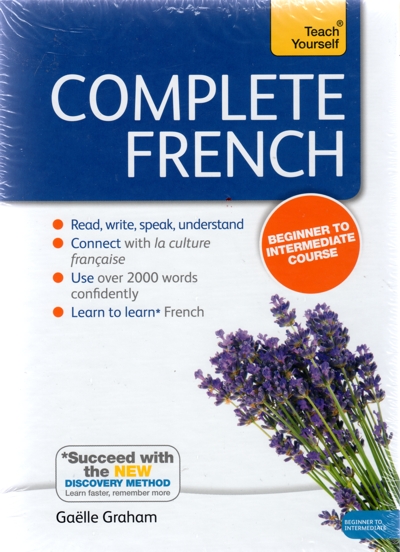
Teach Yourself Complete FrenchBook and 2 Audio CDsGaelle GrahamGet Other French Audio Language learning Audio click here |
 |
Teach Yourself Complete French - Learn to Speak French - Book and 2 Audio CDsBrand New : Book and 2 Audio CDs - 400+ page book
Learn effortlessly with full colour text, easy-to-read page design and interactive features: NOT GOT MUCH TIME? AUTHOR INSIGHTS GRAMMAR TIPS USEFUL VOCABULARY DIALOGUES PRONUNCIATION TEST YOURSELF EXTEND YOUR KNOWLEDGE TRY THIS The complete, fully interactive language learning package Table of Contents: About the Author Gaëlle Graham:Gaëlle Graham holds degrees from the Sorbonne and the University of Kent, and has over 25 years’ experience of teaching French in secondary schools and as a teacher trainer. About the French LanguageFrench is a Romance language originally spoken in France, Belgium, Luxembourg, and Switzerland, and today by about 350 million people around the world as either a native or a second language, with significant populations in 54 countries. French is a descendant of the Latin of the Roman Empire, as are languages such as Spanish, Italian, Catalan, Romanian, and Portuguese. Its development was also influenced by the native Celtic languages of Roman Gaul and by the Germanic language of the post-Roman Frankish invaders. It is an official language in 31 countries, most of which form what is called in French La Francophonie, the community of French-speaking nations. It is an official language of all United Nations agencies and a large number of international organisations. Per the Constitution of France, French has been the official language since 1992 (although previous legal texts have made it official since 1539, see ordinance of Villers-Cotterêts). France mandates the use of French in official government publications, public education outside of specific cases (though these dispositions are often ignored) and legal contracts; advertisements must bear a translation of foreign words. In addition to French, there are also a variety of regional languages. France has signed the European Charter for Regional Languages but has not ratified it since that would go against the 1958 Constitution. The majority of French words derive from Vulgar Latin or were constructed from Latin or Greek roots. There are often pairs of words, one form being popular (noun) and the other one savant (adjective), both originating from Latin. The last example, Saint-Étienne/Stéphanois, illustrates common practice for gentilics throughout France. In some examples there is a common word from "vulgar" Latin and a more savant word from classical Latin or even Greek. The French words which have developed from Latin are usually less recognisable than Italian words of Latin origin because as French developed into a separate language from Vulgar Latin, the unstressed final syllable of many words was dropped or elided into the following word. The French counting system is partially vigesimal: twenty (vingt) is used as a base number in the names of numbers from 80–99. The French word for eighty, for example, is quatre-vingts, which literally means "four twenties", and soixante-quinze (literally "sixty-fifteen") indicating 75. This reform arose after the French Revolution to unify the different counting system (mostly vigesimal near the coast, due to Celtic and Viking influence). This system is comparable to the archaic English use of score, as in "fourscore and seven" (87), or "threescore and ten" (70). Belgian French and Swiss French are different in this respect. In Belgium and Switzerland 70 and 90 are septante and nonante. In Switzerland, depending on the local dialect, 80 can be quatre-vingts (Geneva, Neuchâtel, Jura) or huitante (Vaud, Valais, Fribourg). Octante had been used in Switzerland in the past, but is now considered archaic. In Belgium, however, quatre-vingts is universally used. |
Teach Yourself Complete French - Learn to Speak French - Book and 2 Audio CDs |
| Stock Info: | Out of Print |

 0 Items (Empty)
0 Items (Empty)
